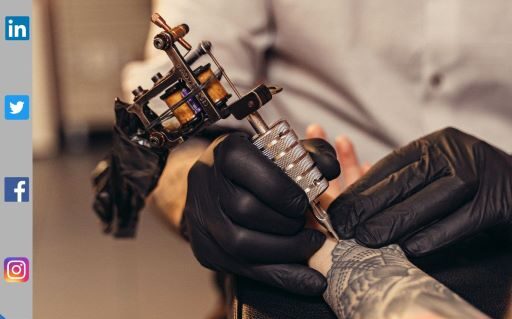
The tattoo industry has grown significantly over the years and has become a multi-billion-dollar industry worldwide. Tattoos have become increasingly popular and accepted in many cultures, with an estimated 20% of the global population having at least one tattoo.
The United States is currently the largest market for tattoos, with approximately 45 million people having at least one tattoo, according to a survey conducted by the Harris Poll. In the United States, the tattoo industry generates an estimated $1.5 billion in revenue annually. The second-largest market for tattoos is in Europe, followed by Asia.
The popularity of tattoos is not just limited to the Western world, with many cultures across the world having a rich history of tattoo art. In Japan, traditional tattooing called Irezumi has been practiced for centuries and is seen as a symbol of bravery and loyalty. In the Middle East, tattoos have a deep cultural significance, with Bedouin women often getting tattoos as a sign of beauty and strength. In many African cultures, tattoos are used as a form of identification and to signify belonging to a particular tribe or community.
The tattoo industry has also seen significant growth in recent years due to advancements in technology, which have allowed for more intricate designs and a wider range of colors. In addition, the rise of social media has made it easier for tattoo artists to showcase their work and reach a wider audience.
According to a report by Research and Markets.com, the global tattoo industry is expected to grow at a compound annual growth rate of 6.8% from 2021 to 2026. The report also highlights the increasing popularity of cosmetic tattoos, such as eyebrow and lip tattoos, which are becoming more mainstream.
Despite the growing popularity of tattoos, there are still some negative stereotypes associated with them. In some cultures, tattoos are still seen as taboo, and individuals with tattoos may face discrimination in certain settings, such as the workplace. However, as tattoos become more mainstream, these attitudes are slowly changing.
In conclusion, the tattoo industry has grown significantly in recent years and has become a global phenomenon. With advancements in technology and a wider acceptance of tattoos in many cultures, the industry is expected to continue to grow in the coming years.
FAQ
- Is tattooing safe?
Tattooing is generally safe when done by a professional and in a sterile environment. However, there are risks associated with tattooing, such as infection, allergic reactions, and scarring. It’s important to research and choose a reputable tattoo artist who follows proper safety protocols.
- How much does a tattoo cost?
The cost of a tattoo varies depending on several factors, such as the size, design, and location of the tattoo. Some tattoo artists charge by the hour, while others charge a flat rate. On average, a small tattoo can cost anywhere from $50 to $200, while larger tattoos can cost several hundred or even thousands of dollars.
- How long does a tattoo take to heal?
The healing time for a tattoo varies depending on the size and location of the tattoo, as well as the individual’s healing process. On average, it takes 2-3 weeks for a tattoo to heal, although it can take up to a month or more for larger or more complex tattoos.
- Can I get a tattoo if I have a medical condition?
It’s important to consult with a doctor before getting a tattoo if you have a medical condition such as diabetes, heart disease, or a compromised immune system. Certain medical conditions may increase the risk of infection or other complications associated with tattooing.
- Can I remove a tattoo?
Yes, it is possible to remove a tattoo using laser technology. However, tattoo removal can be expensive and may require multiple sessions. It’s important to research and choose a reputable tattoo removal specialist to minimize the risk of scarring or other complications.